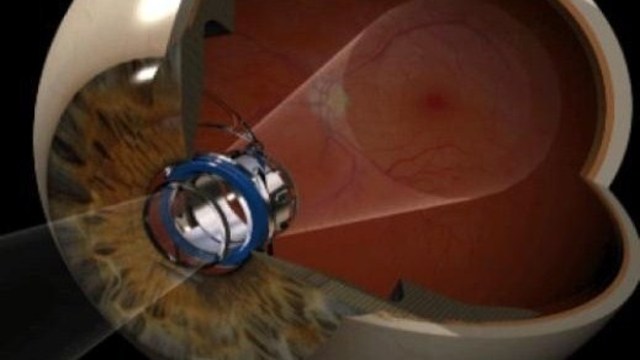 Scott Griessel-Creatista/PhotoSpin
Scott Griessel-Creatista/PhotoSpin
We all know that having too much LDL or “bad” cholesterol in our bloodstream can be harmful to our health. Cholesterol can build up in arteries and cause blockages that can increase your risk for coronary heart disease, heart attacks and strokes.
But did you know that cholesterol can also be bad for your eyes? Cholesterol can build up in your eyes just like it does in blood vessels in other parts of the body.
Cholesterol deposits in the eyes are called drusen. Your eye doctor sees them as yellow or white blobs inside your eyes. Having large drusen in your eyes can be a sign that you are developing age-related macular degeneration (AMD).
Light entering the eye is focused by the lens on the back wall of the inside of the eye which is known as the retina.
Special vision cells in the retina convert light images into electrical signals that are carried to the brain by the optic nerve.
The macula is the center portion of the retina which is responsible for sharp, central vision and fine details.
When we are young, large immune cells called macrophages work in the eye to effectively “eat” cholesterol. This prevents large drusen or cholesterol deposits from forming. But as we age, macrophages become less able to function in the eye, which allows drusen to accumulate.
Research shows that as macrophages age, they can become enflamed and encourage the growth of small blood vessels in the macula of the eye. These extra blood vessels damage the macula and get in the way of clear vision in that part of the eye, resulting in AMD.
Research shows that treating macrophages to decrease or eliminate the effects of aging may reverse this process and return macrophages to their earlier task of preventing excess blood vessel growth.
The research team believes treatments to help macrophages clear away cholesterol may help reduce the growth of excess blood vessels which could slow the development of AMD.
Age-related macular degeneration is currently the leading cause of vision loss in adults age 60 and older in the United States.
Patients with AMD may first see a blurred spot in the center of their vision. This progresses to a black hole in the center of vision that limits their ability to see faces or other central objects and can make it impossible to focus on close objects.
If you notice that straight lines appear crooked, which can be an early symptom of age-related macular degeneration, or if you have other questions about your vision, talk to your eye care specialist.
Sources:
All About Vision. Rejuvenating "Cholesterol Eaters" in the Eyes May Slow AMD Vision Loss. Web. July 25, 2013.
http://www.allaboutvision.com/conditions/amd_news.htm#chol
Science Direct: Cell Metabolism. Impaired Cholesterol Efflux in Senescent Macrophages Promotes Age-Related Macular Degeneration. Abdoulaye Sene et al. Web. July 25, 2013.
http://www.sciencedirect.com/science/article/pii/S1550413113001137
America Heart Association. Cholesterol. Web. July 25, 2013.
http://www.heart.org/HEARTORG/Conditions/Cholesterol/Cholesterol_UCM_001...
Medline Plus. Macular Degeneration. Web. July 25, 2013.
http://www.nlm.nih.gov/medlineplus/maculardegeneration.html
Reviewed August 7, 2013
by Michele Blacksberg RN
Edited by Jody Smith





Add a CommentComments
There are no comments yet. Be the first one and get the conversation started!